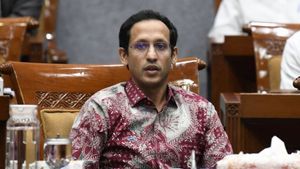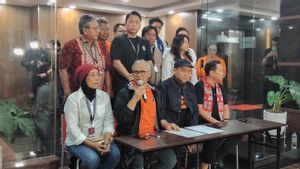JAKARTA - The policy of eliminating thesis as a graduation requirement for undergraduate students is a form of independence in learning. Thesis in the current era is something that limits academic exploration, and sometimes interferes with the wider learning process.
"Thesis requirements are a heavy burden and sometimes limit students' exploration of knowledge and academic interests. A breakthrough is needed that can channel talents and interests, so that they are easily absorbed into the world of work," said DPR Chair Puan Maharani, Tuesday 5 September.
Currently, a thesis is no longer a graduation requirement for undergraduate students, the rules of which are stated in Permendikbudristek Number 53 of 2023 concerning Quality Assurance in Higher Education. In addition, Masters and Doctoral students are not required to write a thesis or dissertation as a graduation requirement.
Instead, the Government proposes that the final project can be in the form of a prototype or a project so that it is not just theses and dissertations. However, the decision is left entirely to the college where the student is studying. Puan considers this to be a form of breakthrough by the Government.
"This is a form of freedom in learning, so that students are free to determine the direction of their graduation without having to rely on the existing system. Students will feel more challenged when they are given the freedom to determine their future," said the former Coordinating Minister for Human Development and Culture.
VOIR éGALEMENT:
Puan added, independence in learning refers to the concept of education that gives freedom to individuals to learn according to their interests, abilities and needs without excessive pressure or constraints.
"This approach encourages exploration, creativity and independent problem solving. So that students have more control over their learning process, which can increase motivation and learning outcomes," said Puan.
Flexibility in determining graduation requirements can help universities accommodate changes and student diversity. Puan assessed that the breakthrough was in line with the era of progress.
"Higher education must be responsive to the times. Maybe there are higher education institutions that consider flexibility in graduation requirements as a step to accommodate the latest developments in the world of work and technology," she said.
Even so, Puan reminded the Ministry of Education and Culture still has homework to prepare an effective oversight mechanism in the application of the graduation requirement method at each tertiary institution. This system is needed to ensure that the quality of higher education graduates is maintained.
Because, when each campus has different requirements, this can cause inequality in education. Graduates from campuses that are easier or less stringent in terms of requirements may be considered less qualified than graduates from campuses that are more stringent in terms of requirements.
"Higher education institutions that have more stringent graduation requirements may produce graduates who are more competent, while others may lack comparable qualifications. This will also affect universities in the eyes of employers," she stated.
The English, Chinese, Japanese, Arabic, and French versions are automatically generated by the AI. So there may still be inaccuracies in translating, please always see Indonesian as our main language. (system supported by DigitalSiber.id)

















